Probiotics are often thought to be good for your gut, but not all of them are helpful. Some might actually be bad for your digestive system. Let's look at 5 ways your probiotic supplement could be hurting your gut health without you knowing. It's important to understand these problems so you can make good choices about your digestive health.
| Key Takeaways |
|---|
| • Many probiotic supplements contain harmful fillers that can cause gut inflammation • Excipients used in manufacturing can interfere with nutrient absorption and probiotic effectiveness • Poor quality prebiotics may lead to bacterial imbalances and digestive issues • Cheap capsules can cause side effects and reduce probiotic efficacy • Ignoring postbiotic effects means missing out on additional gut health benefits • Choosing a high-quality probiotic without harmful additives is essential for optimal gut health |
1. Harmful Fillers
Many probiotic supplements have fillers that can be bad for your gut health. Common fillers are silica, inulin, cellulose, and oligosaccharides. These are added to make the capsule bigger or to make production cheaper, but they don't help your digestive system and might even hurt it. It's important to know how these fillers can affect your gut bacteria and overall health.
Silica is basically finely ground sand. It has no nutritional value and just takes up space in the capsule. Inulin is often called a prebiotic, but it's usually a cheap, low-quality option that doesn't give the right nutrients to good bacteria. Cellulose comes from wood pulp and can build up in your body over time, possibly causing long-term inflammation. Microcrystalline cellulose is even finer and might be more risky because it's smaller and your body absorbs more of it. Oligosaccharides are another common filler used as a cheap food source for bacteria, but they don't have the variety of nutrients found in good prebiotics.
These fillers can cause gut inflammation and might make conditions like leaky gut syndrome worse. In leaky gut, the lining of your intestines becomes more permeable, letting harmful substances into your bloodstream. Long-term gut inflammation can lead to many health problems, including digestive discomfort, trouble absorbing nutrients, and even inflammation throughout your body. It's really important to carefully read the label of your probiotic supplement. Look beyond just the types of bacteria to find any potentially harmful additives. Choosing a probiotic without these fillers can make it work much better and reduce the risk of bad effects on your gut health.
2. Excipients (Machine Lubricants)
Excipients are additives used to make probiotic capsules. They help in production and make the final product more stable. The most common excipients in probiotic supplements are magnesium stearate and vegetable stearate. While these are usually considered safe in small amounts, taking them daily through supplements might be risky for your digestive health and might make the probiotic bacteria less effective.
These excipients can interfere with how your body absorbs nutrients in your digestive system and might reduce how well the probiotic strains work. The lubricants can create a water-repelling barrier around the probiotic bacteria, which might stop them from growing well in your gut. This interference can really reduce the benefits you're supposed to get from the probiotic supplement. Also, regularly taking these excipients can put extra stress on your digestive system, possibly causing mild irritation or more serious digestive problems in people who are sensitive to them.
MicroBiome Restore is different because it doesn't use any excipients. This means you get a clean probiotic supplement without any potentially harmful additives. By not using these unnecessary ingredients, MicroBiome Restore gives the probiotic bacteria the best chance to grow in your gut and supports optimal gut health without adding extra stress to your digestive system. When you're choosing a probiotic supplement, it's best to pick products that use few or no excipients. This can lead to a better and less problematic experience with your supplement.
3. Poor Quality Prebiotics
Prebiotics are really important for helping good gut bacteria grow and work well. But many probiotic supplements either don't have prebiotics or use low-quality ones that don't feed the probiotic strains properly. This can make the supplement less effective and might even cause problems for your gut health.
Without good prebiotics, the probiotic bacteria added to your gut might have trouble growing and thriving among all the other bacteria in your gut. Sometimes, these bacteria might start eating nutrients from your food that your body needs, which could lead to not having enough of certain nutrients. Poor quality prebiotics can also cause too much growth of certain types of bacteria, upsetting the balance of bacteria in your gut. This imbalance can cause digestive problems like bloating and gas, and in worse cases, conditions like small intestine bacterial overgrowth (SIBO).
Additionally, choosing the wrong strains is particularly problematic for those with SIBO, where spore-forming probiotics offer distinct advantages over traditional Lactobacillus-only formulas.
When you choose a probiotic supplement, it's important to look for ones that include high-quality, organic prebiotics. These should provide different types of fibers and other things that help good bacteria grow. Good prebiotics should not be digested in the upper part of your digestive system, so they can reach the colon where probiotic bacteria can use them. Some examples of good prebiotics are fructooligosaccharides (FOS), galactooligosaccharides (GOS), and resistant starches. By choosing a probiotic with well-researched, effective prebiotics, you can help good bacteria grow better, leading to improved gut health and a more balanced mix of bacteria in your gut.
4. Cheap Capsules
The quality of the capsule used in probiotic supplements is really important, but many people don't think about it. A lot of companies use cheap capsules made from things like microcrystalline cellulose or gelatin to save money. But these cheap options can affect how well the probiotic works and your overall gut health.
Microcrystalline cellulose capsules are common in supplements, but they might cause inflammation in some people. This inflammation could cancel out the good effects of the probiotic and might make digestive problems worse. Also, these capsules might not break down well in your digestive system, which could stop the probiotic bacteria from reaching the right parts of your gut. Gelatin capsules, which come from animals, are a problem for vegetarians and people with certain dietary restrictions. Some people might also have digestive discomfort or allergic reactions to gelatin.
Good quality probiotic supplements use better capsule technologies that protect the probiotic strains during storage and help them survive the strong acid in your stomach. Advanced capsule materials, like delayed-release or enteric-coated capsules, can really improve the delivery of live bacteria to your intestines where they can do their good work. These special capsules are made to withstand stomach acid and only dissolve in the less acidic environment of your small intestine, giving the probiotic bacteria the best chance to grow in your gut. When you're looking at probiotic supplements, paying attention to the type of capsule used can make a big difference in how well the product works and how it affects your gut health.
5. Ignoring Postbiotic Effects
Postbiotics are the things produced when probiotic bacteria break down prebiotic fibers. These include short-chain fatty acids, enzymes, and peptides, which can have big benefits for your gut and overall health. Unfortunately, many probiotic supplements only focus on the number of live bacteria and don't think about the potential postbiotic benefits.
When a probiotic doesn't consider postbiotic effects, it misses a chance to provide a more complete approach to gut health. Postbiotics can help keep your gut barrier strong, support your immune system, and even affect your metabolism and brain function through the connection between your gut and brain. They also help create an environment that supports the growth of good bacteria while stopping harmful bacteria. By not thinking about these effects, many probiotic supplements only give you a small part of the potential benefits for your digestive system.
MicroBiome Restore takes a complete approach to gut health by thinking about the whole life cycle of probiotic bacteria, including their postbiotic effects. This comprehensive strategy ensures that you get benefits not only from the live probiotic strains but also from the good compounds they produce during and after their life in your gut. By focusing on both probiotic and postbiotic effects, MicroBiome Restore aims to provide more complete and long-lasting support for your digestive health, potentially leading to better results in terms of gut balance, immune function, and overall well-being.
What Can You Do?
If you're worried about how your current probiotic supplement might be affecting your gut health, here are some things you can do to support your digestive system and get the most out of probiotic supplements:
- Eat more foods with prebiotics. Leeks, asparagus, and seaweed are great sources of different prebiotic fibers that can feed your gut bacteria. Other good options include garlic, onions, Jerusalem artichokes, and chicory root. By eating a variety of prebiotic foods, you can support the growth and diversity of good gut bacteria.
- Try to reduce inflammation in your body through what you eat. Foods rich in antioxidants can help fight oxidative stress and inflammation, which are often behind many digestive issues. Berries, leafy greens, nuts, and fatty fish are all great sources of anti-inflammatory compounds. You could also try adding turmeric, ginger, and green tea to your diet because they have strong anti-inflammatory properties.
- When choosing a probiotic supplement, focus on quality rather than quantity. Look for a high-quality probiotic that doesn't have harmful additives, uses good capsule technology, and includes well-researched strains of beneficial bacteria. Check if it has quality prebiotics and consider products that think about postbiotic effects for a more complete approach to gut health.
BioPhysics Essentials' MicroBiome Restore stands out as a probiotic supplement that addresses the common problems discussed in this article. With its mix of 26 probiotic strains, no fillers or excipients, and focus on quality ingredients, MicroBiome Restore is designed to provide comprehensive support for your gut microbiome. By choosing a product that prioritizes purity and effectiveness, you can take a big step towards improving your digestive health and overall well-being.
Conclusion
The probiotic supplement you choose can really affect your gut health, either helping or possibly harming your digestive system. By understanding the hidden ways that some probiotics might be bad for your gut, you can make better decisions about which supplements to take. It's important to look beyond what the marketing says and carefully check the ingredients, how the product is made, and the overall quality of probiotic products.
When picking a probiotic, choose supplements that don't have harmful fillers, unnecessary additives, or cheap capsules. Look for products that include good quality prebiotics and think about the potential postbiotic effects. Remember that a truly effective probiotic should support your gut health in a complete way, not just by adding good bacteria but also by creating an environment where these bacteria can thrive and provide lasting benefits.
While a good probiotic supplement is important for maintaining digestive health, it should be part of a bigger approach to gut wellness. Eating a balanced diet with lots of fiber and fermented foods can really help your probiotic work better. Drinking enough water and managing stress through things like meditation or yoga can also play big roles in supporting your digestive system.
By taking a complete approach to gut health that includes careful supplement selection, thinking about your diet, and lifestyle factors, you can create the best environment for your gut bacteria to thrive. This approach not only supports digestive health but can also lead to better overall well-being, a stronger immune system, and even better mental health through the connection between your gut and brain. Remember, a healthy gut is the foundation for a healthy body, and taking care of your digestive wellness is an investment in your long-term health and vitality.


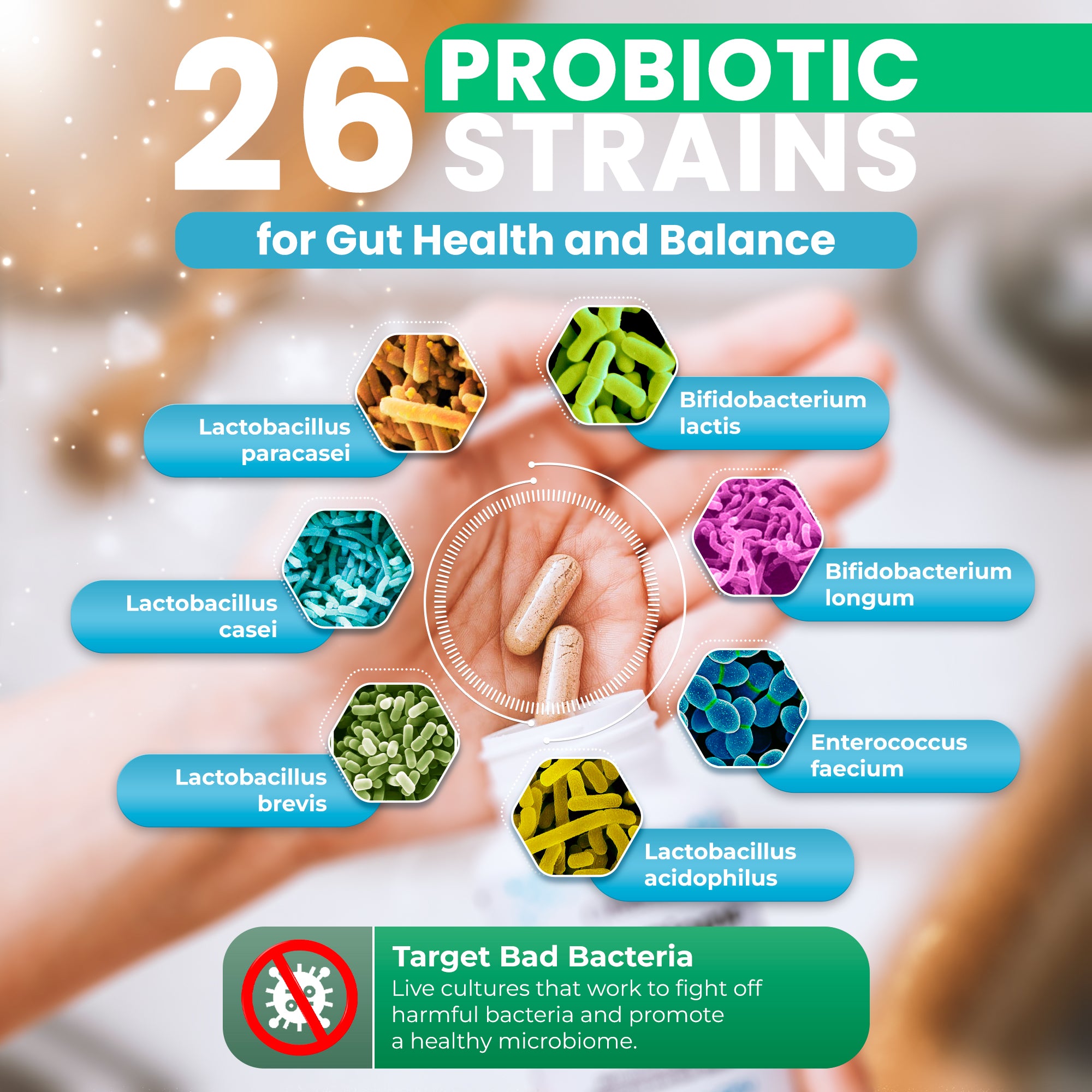
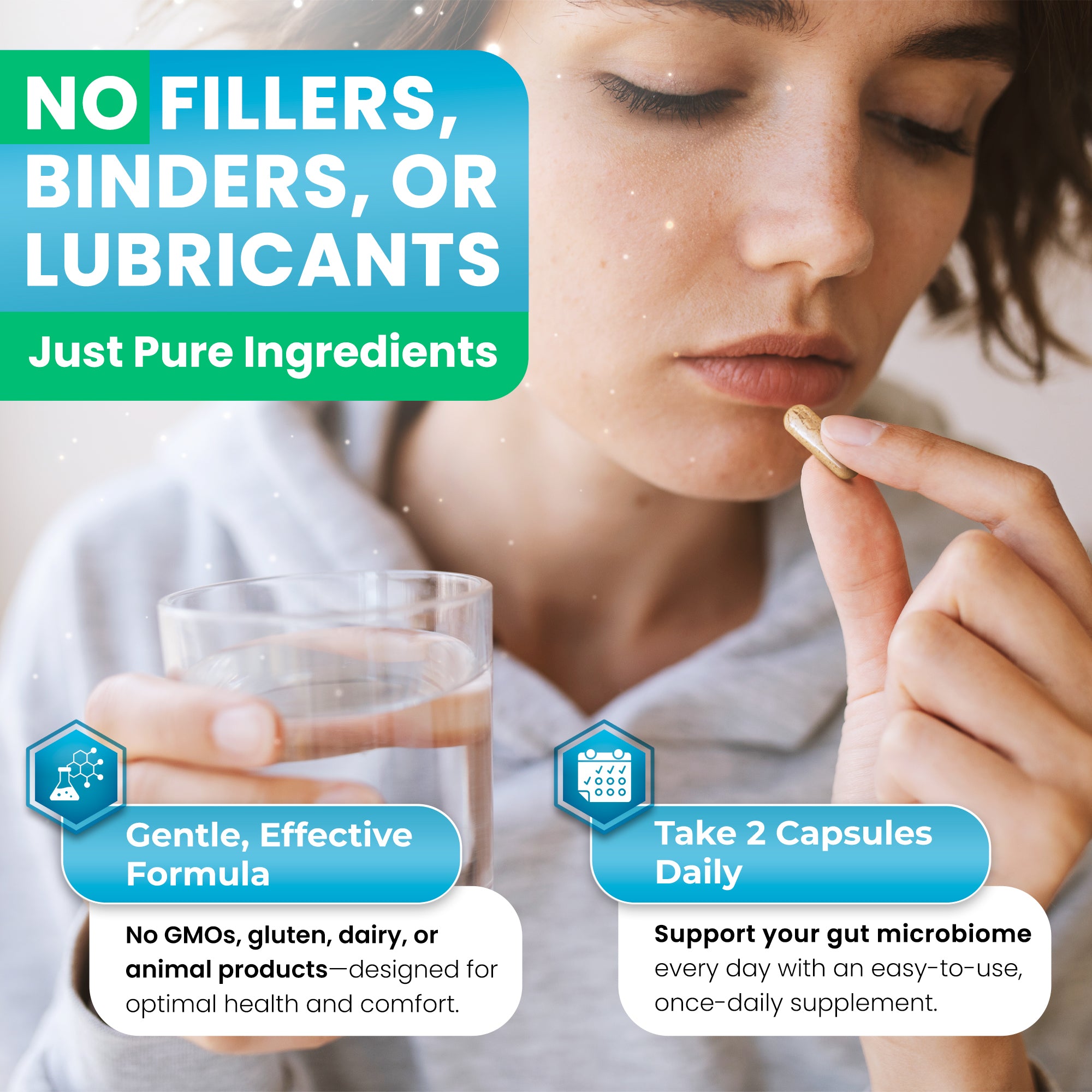
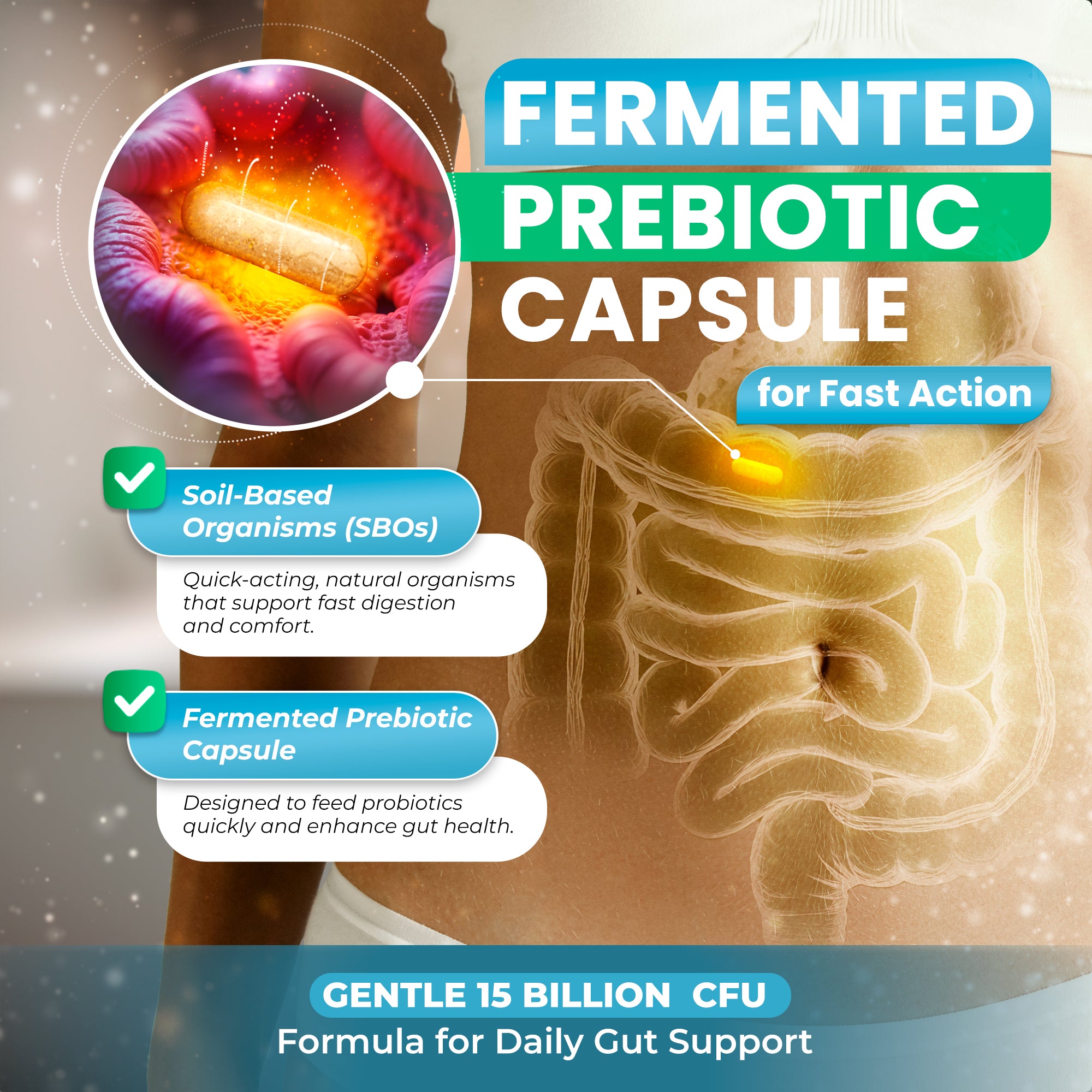
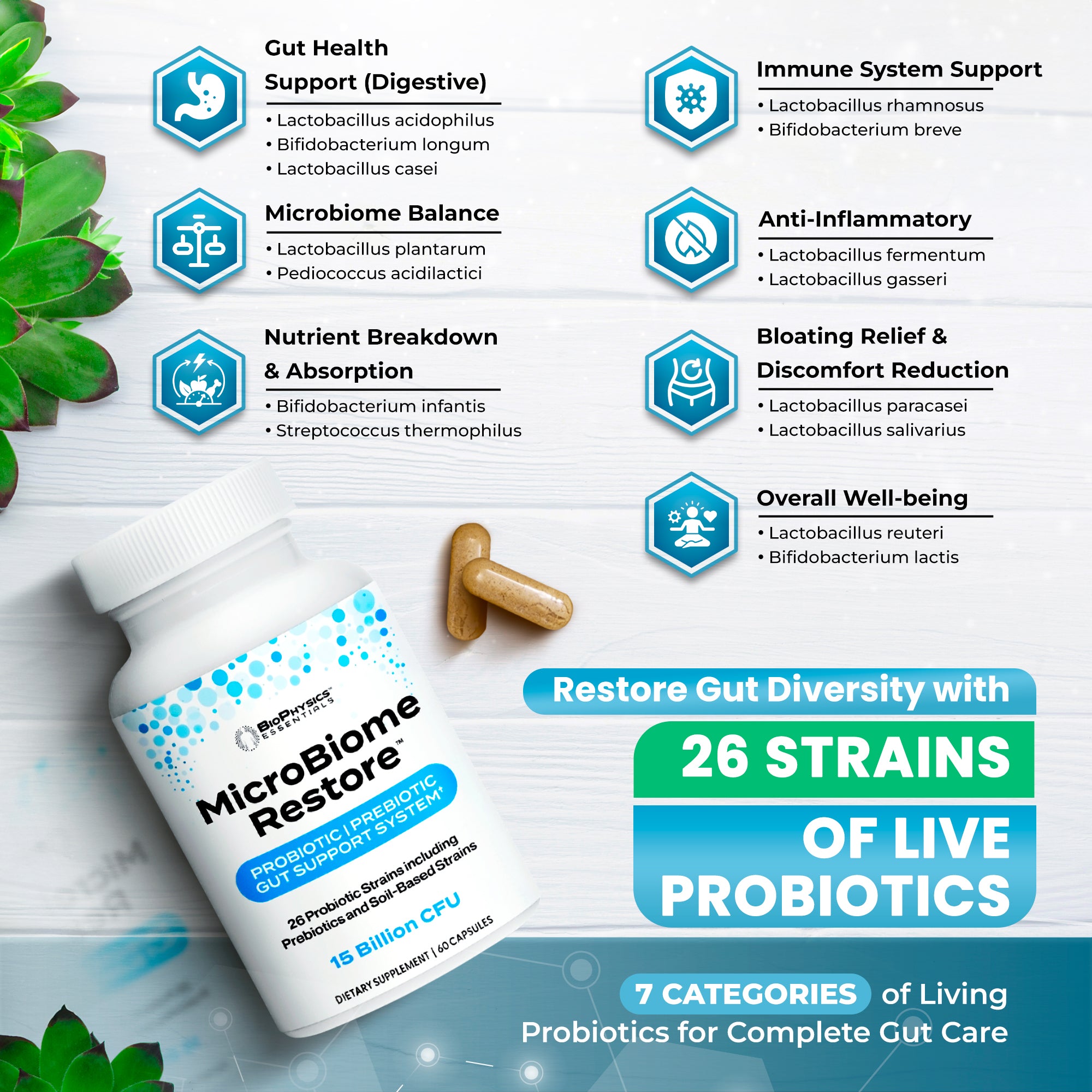
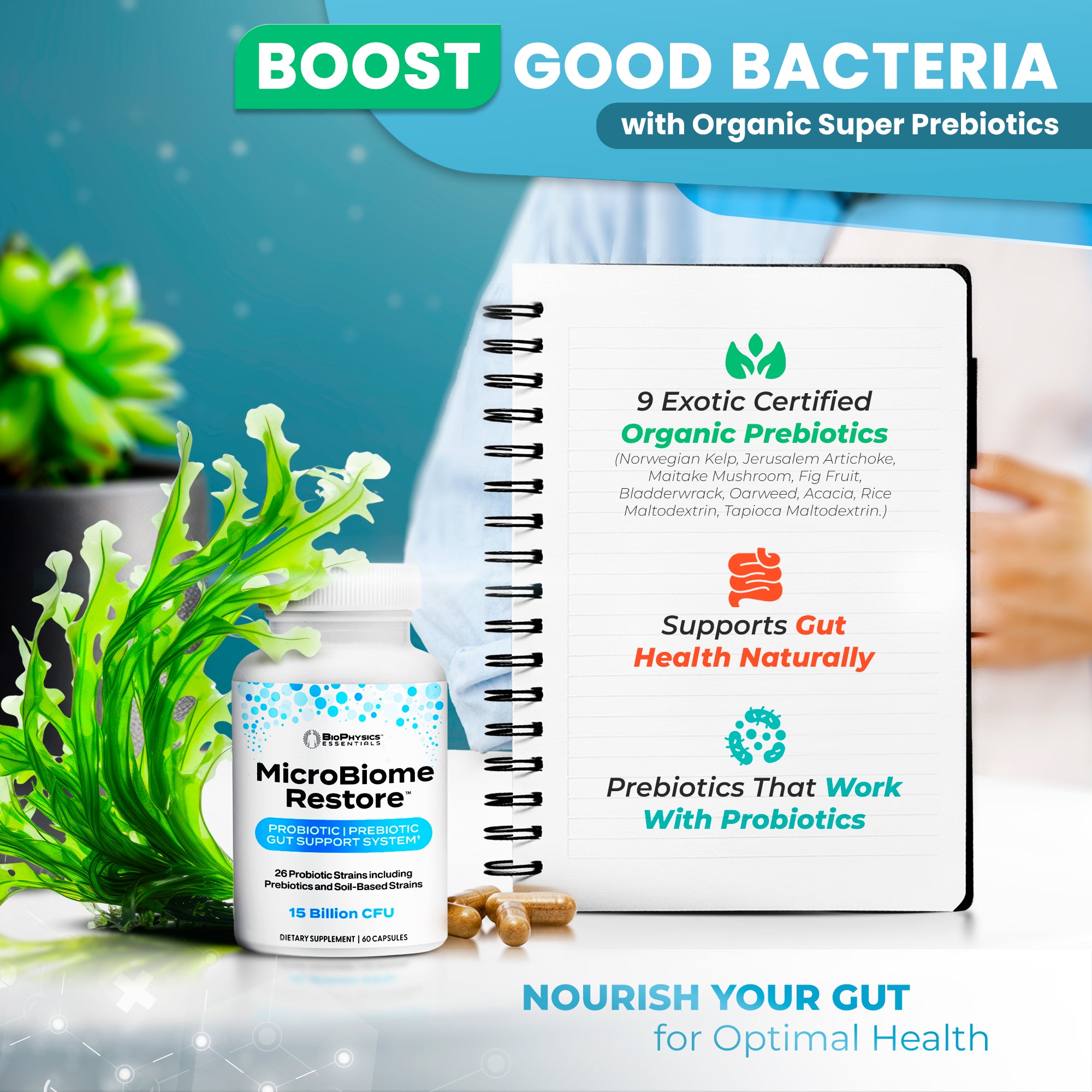
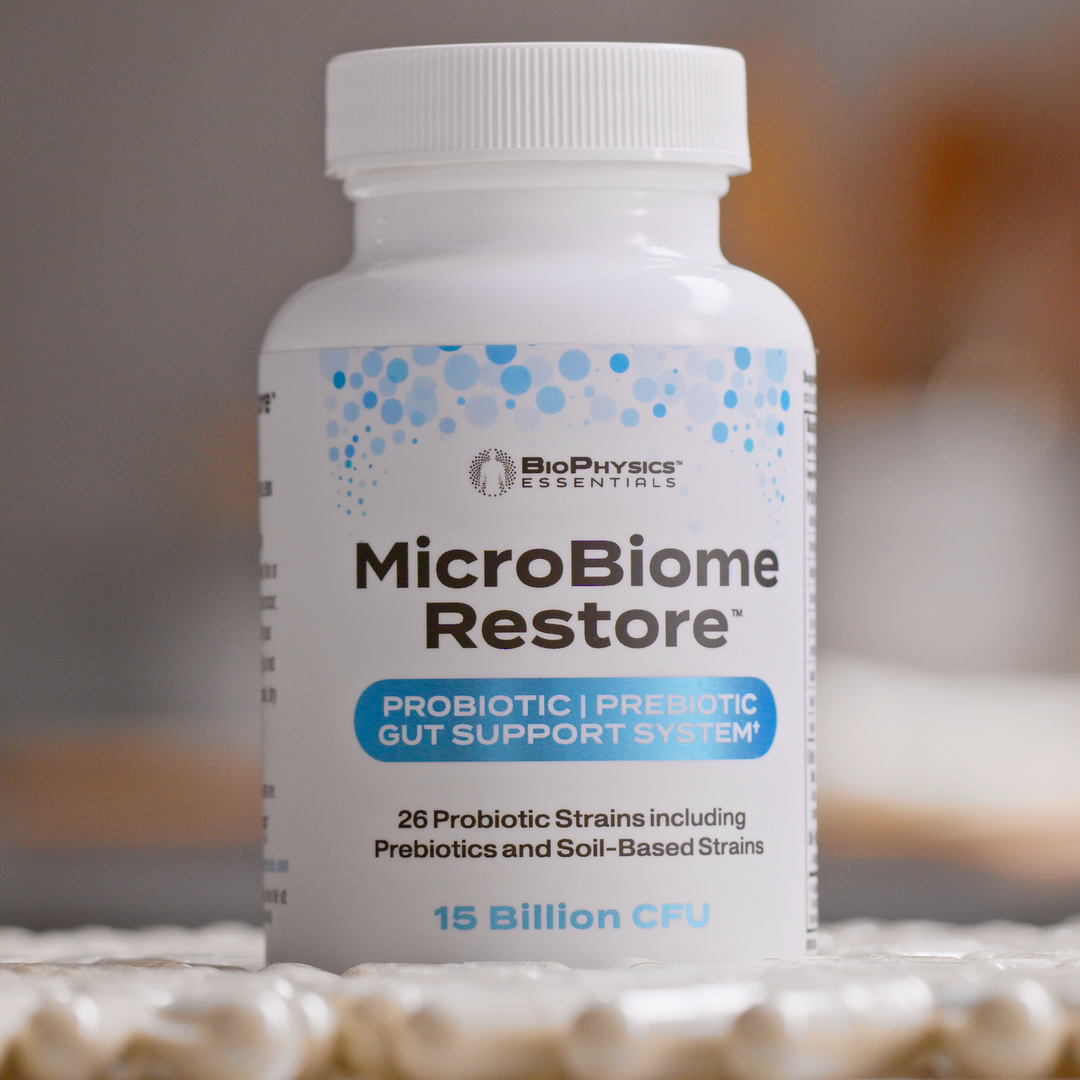
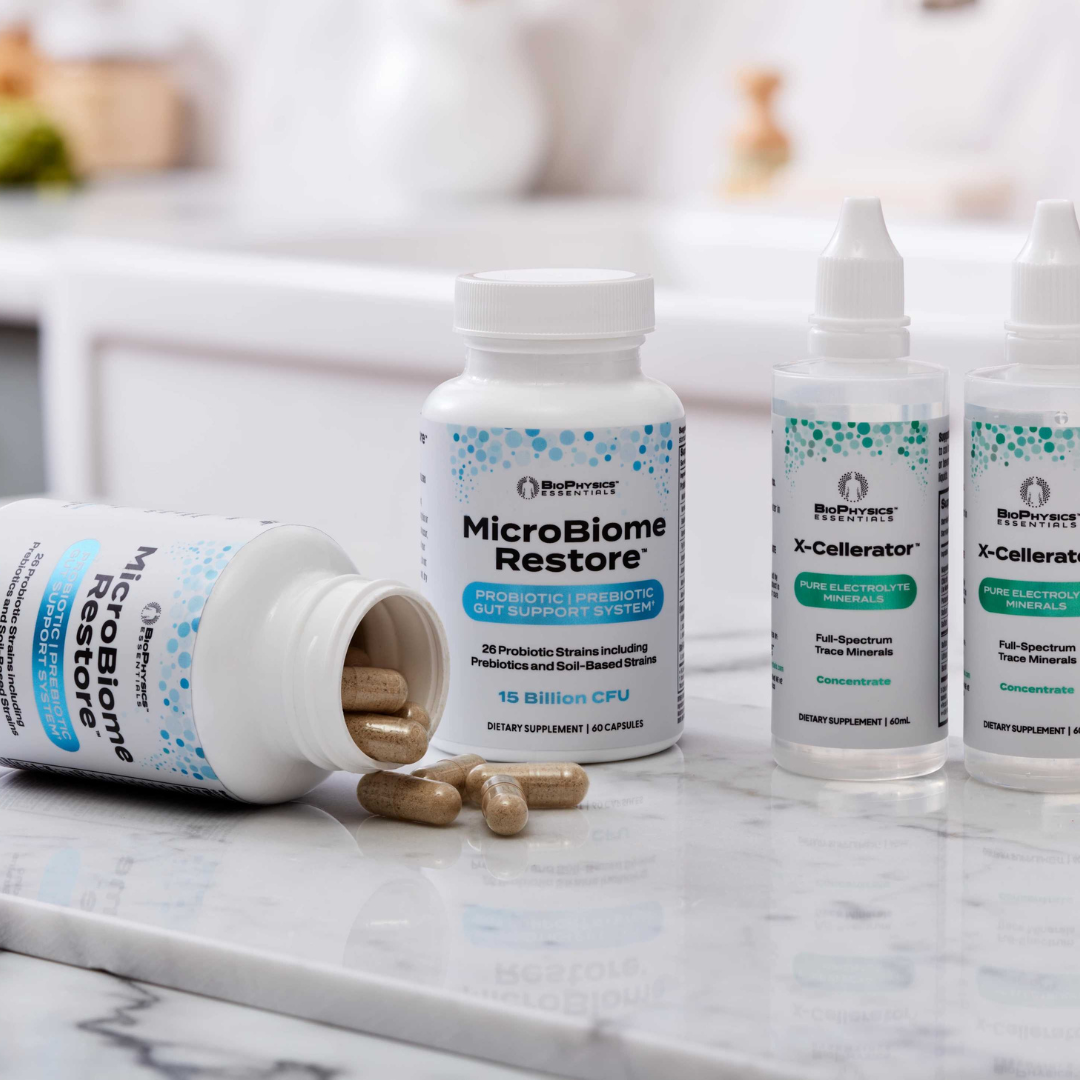



Share and get 15% off!
Simply share this product on one of the following social networks and you will unlock 15% off!